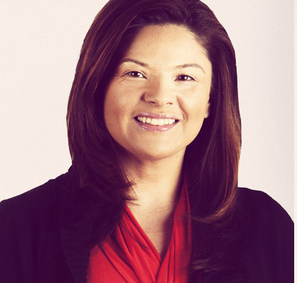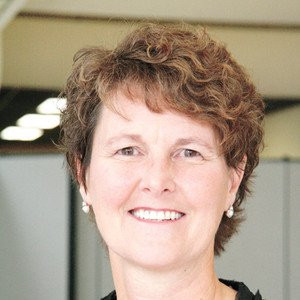It’s All About Education: Why Common Core Won’t Help Our Children
Wednesday, November 05, 2014
There has been a lot of talk about the Common Core Standards (CCS); I’ve already written about them here, in fact. Despite the fact that 46 states (and the District of Columbia, as well as four territories, have committed to adopting the standards, it seems that more critics speak out each day. There are two main issues that keep cropping up. One is that Common Core is synonymous with standardized testing; the way schools intend to measure their effectiveness in achieving the Common Core standards is through administering standardized tests to students. The other question that has arisen is one of suitability: are the Common Core standards developmentally appropriate for the majority of the students in our public schools?
First let’s address the testing issue. For years, our main measure of student achievement has been standardized tests. In 1965, schools that received federal Title I funds were first required to administer standardized tests to their students. The use of standardized tests increased with demands for accountability; by the late 1980s, 33 states required some form of competency testing. The main point of those tests was to ensure that students had acquired minimum basic skills; those students who had not were often placed in remedial classes as a result of their test performance. When I taught in Maryland in the early 1990s, the Maryland State Performance Assessment Program (MSPAP) was in its infancy: just as in many other states, students in selected grades spent about a week each spring taking an assessment designed to “test their mastery of the basics and how well they applied knowledge in authentic problem-solving situations. MSPAP's primary purpose was to provide information that could be used to improve instruction in schools.” This test continued for a decade, and then morphed into the Maryland State Assessment (MSA) program, which was correlated with the No Child Left Behind Act. Here in New England, there was a similar trajectory: the New England Common Assessment Program (NECAP) was adopted in 2005 by Rhode Island, Vermont, and New Hampshire, and Maine joined in 2009. Meanwhile, Massachusetts has been giving its students the Massachusetts Comprehensive Assessment System (MCAS) tests since 1993.
What effect have all of these tests had on our students? As a classroom teacher and a reading and math specialist at that time, I can tell you how those tests changed the tenor of the classroom. Much of our focus, particularly in the spring, became about “test readiness;” teaching third graders to deal with the incredible stress they felt, making sure that they knew how to respond to unfamiliar test language and exactly what types of things to write for an essay topic asking, ‘Explain how the speaker feels at the end of poem 2. Use details from poem 2.’ Unlike earlier standardized tests, these tests were not meant to evaluate individual students but rather the performance of the school as a whole; thus, we also had motivational issues, students (and parents) who wondered, “Who cares if I blow off this test anyway? No one will know if I don’t do my best.” Did the results of the tests inform our teaching in subsequent years? To an extent, perhaps, but mostly the tests just introduced a lot of stress and wasted precious class time.
GET THE LATEST BREAKING NEWS HERE -- SIGN UP FOR GOLOCAL FREE DAILY EBLASTOver the years, the No Child Left Behind Act and the high-stakes testing associated with it continued to evolve, and the Common Core is the latest iteration. In fact, the tests designed to measure achievement of the Common Core standards were developed in conjunction with the Common Core standards: it is impossible to separate one from the other. Many states are planning to use either the Smarter Balanced Test or the PARCC test. Interestingly, both of these tests are administered online. This could become an issue since, just last month, a University of Connecticut study was released showing a marked disparity between the online reading skills of low-income students as compared to their wealthier peers.
Finally, Common Core standards were developed from the 12th grade down. The underlying question, “What do graduating high school seniors need to know?” was the starting point, and then standards for the lower grades were developed from there. The majority of the writers of the CCS were primarily researchers and assessment writers; very few of them had classroom experience. This step-down approach has dismayed many advocates for young children, such as the Alliance for Childhood. The Joint Statement of Early Childhood Health and Education Professionals on the Common Core Standards Initiative, released in 2010 and signed by numerous pediatricians, child development specialists, and educators, delineates many of the concerns surrounding the adoption of Common Core standards for children in Kindergarten through grade 3. In fact, many other countries known for their high-performing students (China, Finland, and Sweden for example) don’t even start formal instruction until age 7.
Any good teacher knows that you start by meeting your students where they are – you build upon the knowledge each student already possesses and actively engage them. The standards do not take into account the individual differences inherent in human development. These concerns about the Common Core are not going to go away anytime soon; in fact, we will most likely be debating them for years to come. I believe that our children are too precious a resource to use as guinea pigs for the next several years. Again, the research exists; we just have to apply that knowledge so that our schools become student-centered hubs of creativity and innovation, rather than factories than churn out good test-takers.
Lauri Lee is an independent consultant with over twenty years of experience in both public and private education, with learners from infants through adults. With experience in marketing, communications, social media, development, admissions, and technology, she is able to synthesize many of the issues facing our educational system today. She lives in Providence with her family, a big dog, and a small cat. She encourages you to connect with her on Twitter @fridovichlee or to contact her directly at [email protected].
Related Slideshow: RI Experts on the Biggest Issues Facing Public Education
On Friday November 22, the Hassenfeld Institute for Public Leadership at Bryant University, the Latino Policy Institute of Roger Williams University, the Rhode Island Association of School Committees, the Providence Student Union, and RI-CAN: Rhode Island Campaign for Achievement Now will host Rhode Island leaders in the public and nonprofit sectors for a symposium on "the civil rights issue of the 21st century, adequacy and equity and the State of Education in Rhode Island."
Weighing in on the the "three biggest factors" facing education in the state today are symposium participatnts Gary Sasse, Founding Director of the Hassenfeld Institute for Leadership; Christine Lopes Metcalfe, Executive Director of RI-CAN; Anna Cano-Morales, Chairwoman of the Board of Trustees, Central Falls Public Schools and Director, Latino Policy Institute at Roger Williams University; Tim Duffy, Executive Director, RI Association of School Committees; and Deborah Cylke, Superintendent of Pawtucket Public Schools.
Related Articles
- It’s All About Education: Do You Trust Your Child’s Teacher?
- It’s All About Education: It’s About Time
- It’s All About Education: Can Recess Help Children Be More Successful?
- It’s All About Education: Could Text Messaging Make Us Better Parents?
- It’s All About Education: Pediatricians’ Group Finally Jumps on Early Literacy Bandwagon
- It’s All About Education: The Connection Between Housing and Achievement
- It’s All About Education: Is it Time for a Slow Education Movement?
- It’s All About Education: Playing in the Woods Can Help Kids Reach Their Full Potential
- It’s All About Education: What if College Isn’t Necessary
- It’s All About Education: Making the Dream a Reality
- It’s All About Education: Student Engagement Leads to Success
- It’s All About Education: Chronic Absenteeism’s Effect on Learning
- It’s All About Education: Why Common Core Won’t Help Our Children













